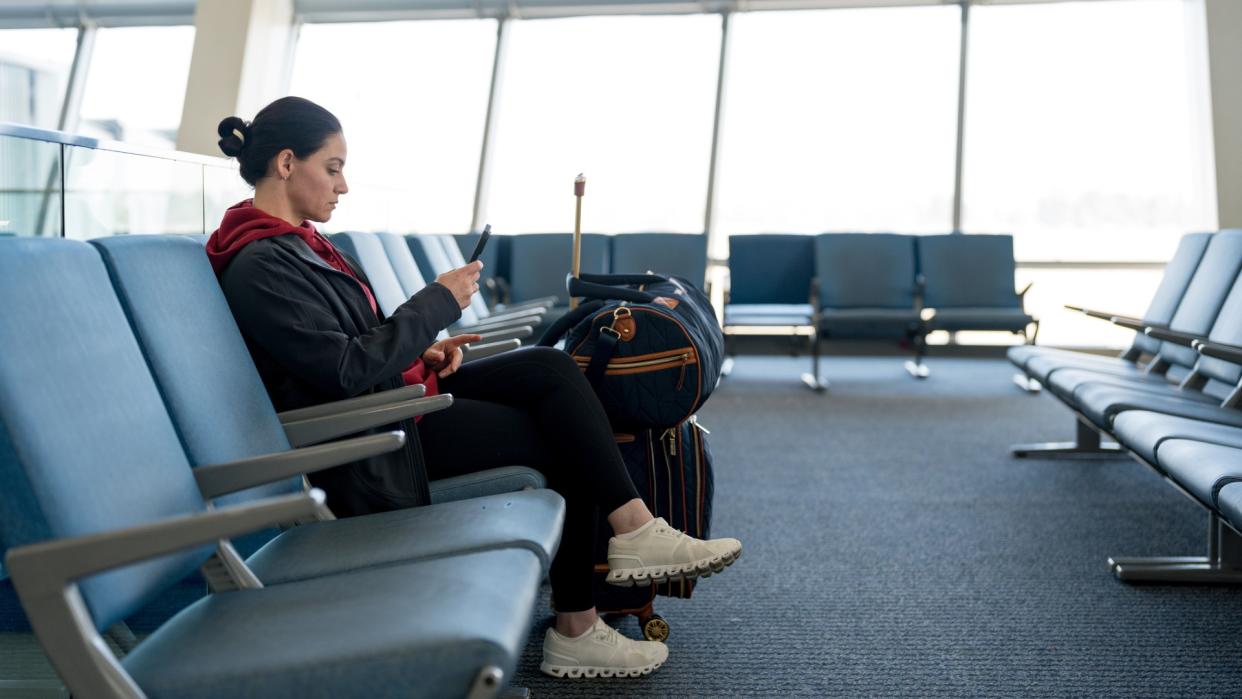How To Protect Your Financial Information While Using an Airplane’s Wi-Fi

Let your device get hacked, and there’s no limit to the chaos that hackers can put you through. Hackers can turn your life upside-down from identity theft to bank theft to ransomware attacks.
For You: Suze Orman: 3 Ways To Prepare for the Upcoming Financial Pandemic
Try This: 7 Unusual Ways To Make Extra Money (That Actually Work)
Your home and office networks are almost certainly secure. But we connect to less secure networks all the time — especially when we travel.
So how can you protect yourself and your devices when you connect to insecure networks like airport and airplane Wi-Fi?
Update & Maximize Your Security Software
Your first line of defense is always your antivirus and other security software. Make sure it’s up to date to monitor the latest threats.
You can also turn on optional features you don’t normally use before flying. For example, you can turn on “Safe Search” to protect against riskier search results for an extra layer of protection.
Avoid Public USB Ports
Before stepping onto the airplane, avoid plugging your USB cable directly into a public charging port.
The Denver FBI Field Office warned about this last year. Known as “juice jacking,” hackers have learned how to install spyware or other malicious software on your device through these jacks.
Instead, plug your charging cable and adapter into an old-fashioned wall socket.
Use a VPN
A virtual private network or VPN lets you route your connection through a secure server (in your chosen location). They work great for coffee shops and other public WiFi networks, as a go-to way to secure your connection.
That said, VPNs don’t always work on airplane networks — which is why you need to stay more vigilant than usual on these public networks.
Avoid Sensitive Sites While Flying
Do you really need to log into your bank account mid-flight? Or check your 401(k) balance, or send money via Paypal?
They’ll still be there when you land. Wait the extra few hours and log in when you get to your hotel or home.
Only Visit Encrypted Websites
When browsing websites, only visit ones encrypted with a secure sockets layer (SSL) certificate. You can tell these by the prefix “https” at the beginning of the URL, instead of plain old “http.”
Theoretically, a hacker can only see that you visited the site, but not anything you entered or did there.
Avoid Uncertain Links & Downloads
Likewise, only visit websites you know and trust while using an insecure network without a VPN.
If a hacker manages to trick you into downloading malware, such as a key logger, they can view everything you type, even on secure websites. Think passwords, Social Security numbers, and more.
Watch for Fake Wi-Fi Networks
Hackers sometimes exploit unsuspecting users by creating their own fake Wi-Fi networks, often with names similar to the real airport or another network. Once you connect, they can access your device and sensitive information easier.
Avoid these trap networks by asking an employee to verify the real Wi-Fi network.
Final Thoughts
You can avoid most online security threats with a VPN and strong firewall and antivirus software.
But if your VPN doesn’t work on a given network, take extra precautions. Your most sensitive online tasks can and should wait until you return to a more secure network.
More From GOBankingRates
This article originally appeared on GOBankingRates.com: How To Protect Your Financial Information While Using an Airplane’s Wi-Fi
